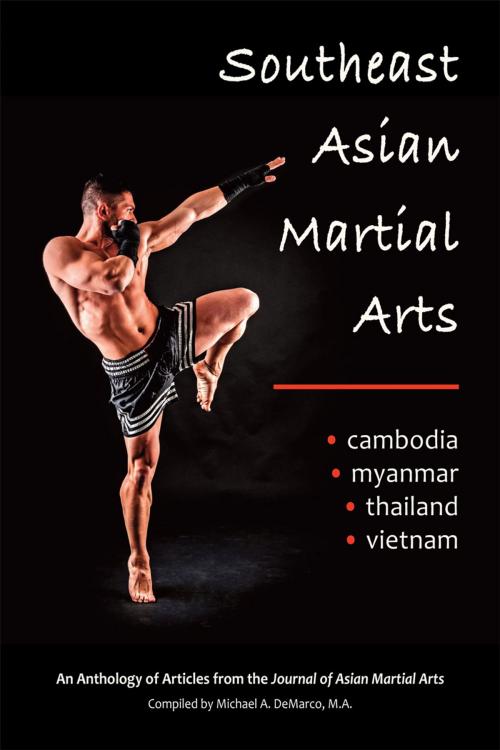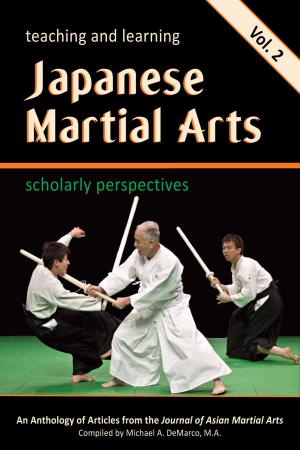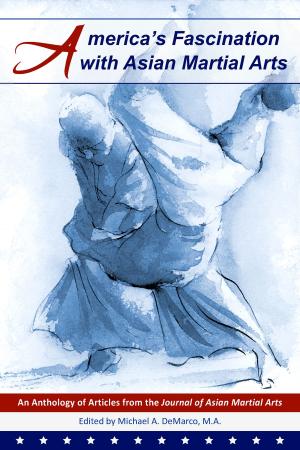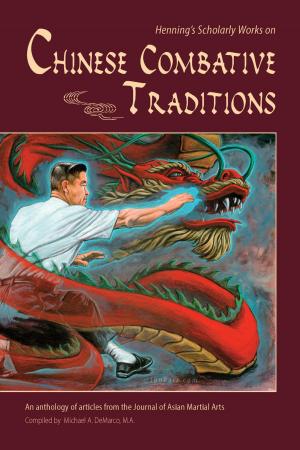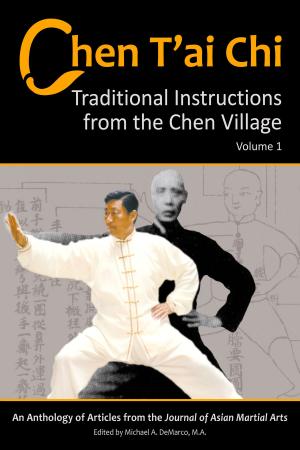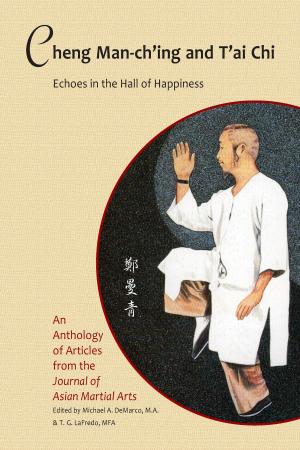Southeast Asian Martial Arts, Cambodia, Myanmar, Thailand, Vietnam
Nonfiction, History, Asian, Southeast Asia, Sports, Martial Arts & Self Defence| Author: | David Allan, Jeremy Skaggs, Jason Tran, Scott Mallon, Loh Han Loong, Duvon Winborne | ISBN: | 1230001566918 |
| Publisher: | Via Media Publishing | Publication: | February 28, 2017 |
| Imprint: | Language: | English |
| Author: | David Allan, Jeremy Skaggs, Jason Tran, Scott Mallon, Loh Han Loong, Duvon Winborne |
| ISBN: | 1230001566918 |
| Publisher: | Via Media Publishing |
| Publication: | February 28, 2017 |
| Imprint: | |
| Language: | English |
What martial arts are associated with Thailand, Vietnam, Cambodia, and Myanmar (Burma)? What makes them unique when compared with other Asian martial systems? This anthology is a convienent collection that focuses on the martial arts of these areas, such as the familiar art of Muay Thai, and lesser-known arts of Than Quyen of Vietnam, Burmese bando, and Cambodian leth wei.
In chapter one, the David Allan brings readers inside the Lumphini Stadium in Bangkok to witness the fighters’ kickboxing skills and etiquette through text and photographs. He also records how musicians play and the locals participate in each event, with emotional exuberance of cheering, and betting.
Jeremy Skaggs wanted to go to Thailand to train with some of the top Muay Thai fighters. His chapter allows readers to relive his experience through text and superb photography. He reports on his travel to Thailand, daily training routines, daily life there, and a night at the Lumphini Stadium.
Chapter three by Jason Tran presents the origin and functions of That Son Than Quyen’s “spirit forms” as inspired by real and mythic animals. This is accomplished by contrasting Than Quyen with Chinese imitation styles, tracing the development of Vietnam religion and superstitions, and exploring the impact of geographic and cultural elements.
In the next chapter Scott Mallon recounts excursions he made into Myanmar and Cambodia to learn about their indigenous martial arts firsthand. He reports on the Muay Thai-like systems and their similarities and difference, along with the special cultural atmospheres where these arts are found. Excellent photo coverage highlight the martial artists.
Loh Han Loong’s chapter goes beyond the common views of Thai boxing by critically examining the way Muay Thai is portrayed in nonacademic sources, such as articles and websites. The manner in which Muay Thai is framed in popular culture is not simply the result of historical facts, but is a way of creating the Thai nation myth and the uniqueness of Thai culture.
The lengthy final chapter by Dr. Winborne focuses on the bando system. His chapter explores ancient Burmese fighting traditions and their evolution to modern-day martial arts practices. Bando is a seamless amalgam of striking methods, grappling techniques, weapons approaches, and healing strategies from the Southeast Asian country currently known as Myanmar. This comprehensive self-defense system is reviewed and analyzed based on documented viewpoints of prominent masters and practitioners. The philosophy and principles that undergird the bando system are discussed as well.
This anthology offers a concise overview of the history, cultures, and combative systems associated with the geographic areas of Cambodia, Myanmar, Vietman, and Thailand. Familiar or not with these martial traditions, readers will be find the chapters informative and photography delightful.
What martial arts are associated with Thailand, Vietnam, Cambodia, and Myanmar (Burma)? What makes them unique when compared with other Asian martial systems? This anthology is a convienent collection that focuses on the martial arts of these areas, such as the familiar art of Muay Thai, and lesser-known arts of Than Quyen of Vietnam, Burmese bando, and Cambodian leth wei.
In chapter one, the David Allan brings readers inside the Lumphini Stadium in Bangkok to witness the fighters’ kickboxing skills and etiquette through text and photographs. He also records how musicians play and the locals participate in each event, with emotional exuberance of cheering, and betting.
Jeremy Skaggs wanted to go to Thailand to train with some of the top Muay Thai fighters. His chapter allows readers to relive his experience through text and superb photography. He reports on his travel to Thailand, daily training routines, daily life there, and a night at the Lumphini Stadium.
Chapter three by Jason Tran presents the origin and functions of That Son Than Quyen’s “spirit forms” as inspired by real and mythic animals. This is accomplished by contrasting Than Quyen with Chinese imitation styles, tracing the development of Vietnam religion and superstitions, and exploring the impact of geographic and cultural elements.
In the next chapter Scott Mallon recounts excursions he made into Myanmar and Cambodia to learn about their indigenous martial arts firsthand. He reports on the Muay Thai-like systems and their similarities and difference, along with the special cultural atmospheres where these arts are found. Excellent photo coverage highlight the martial artists.
Loh Han Loong’s chapter goes beyond the common views of Thai boxing by critically examining the way Muay Thai is portrayed in nonacademic sources, such as articles and websites. The manner in which Muay Thai is framed in popular culture is not simply the result of historical facts, but is a way of creating the Thai nation myth and the uniqueness of Thai culture.
The lengthy final chapter by Dr. Winborne focuses on the bando system. His chapter explores ancient Burmese fighting traditions and their evolution to modern-day martial arts practices. Bando is a seamless amalgam of striking methods, grappling techniques, weapons approaches, and healing strategies from the Southeast Asian country currently known as Myanmar. This comprehensive self-defense system is reviewed and analyzed based on documented viewpoints of prominent masters and practitioners. The philosophy and principles that undergird the bando system are discussed as well.
This anthology offers a concise overview of the history, cultures, and combative systems associated with the geographic areas of Cambodia, Myanmar, Vietman, and Thailand. Familiar or not with these martial traditions, readers will be find the chapters informative and photography delightful.
